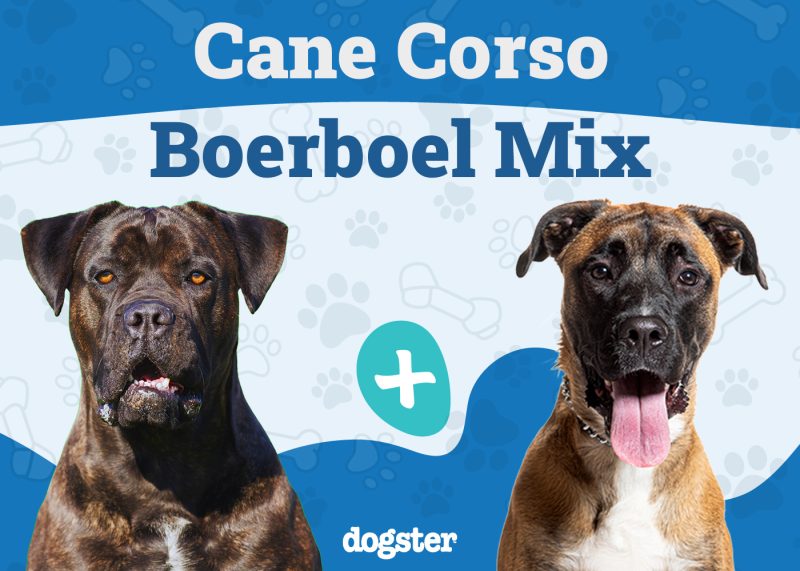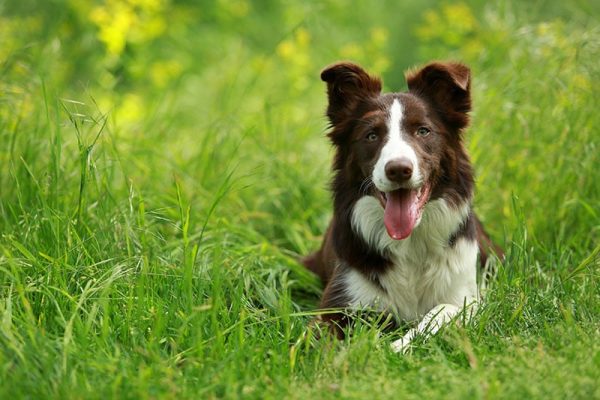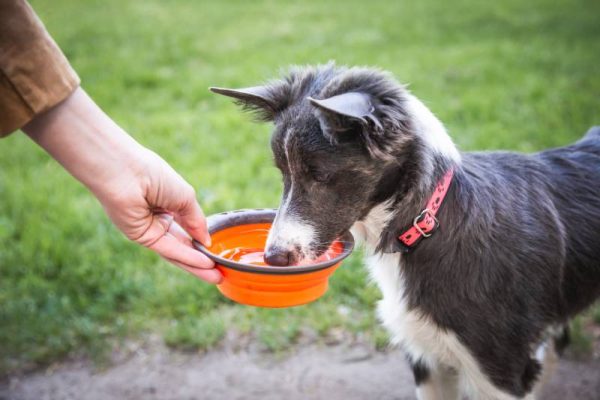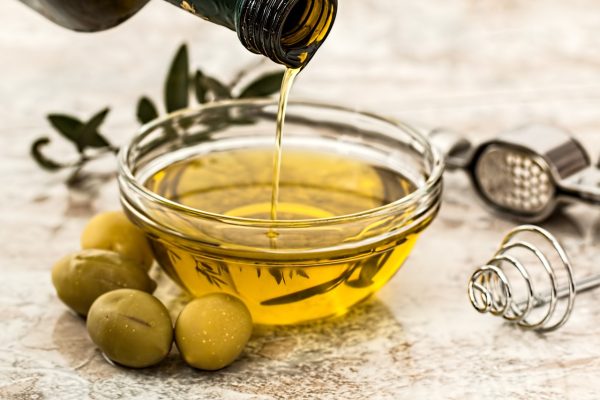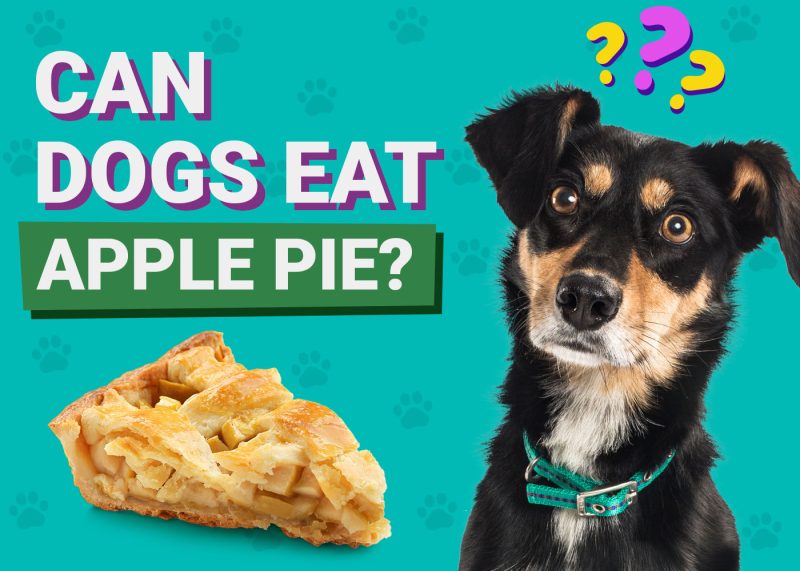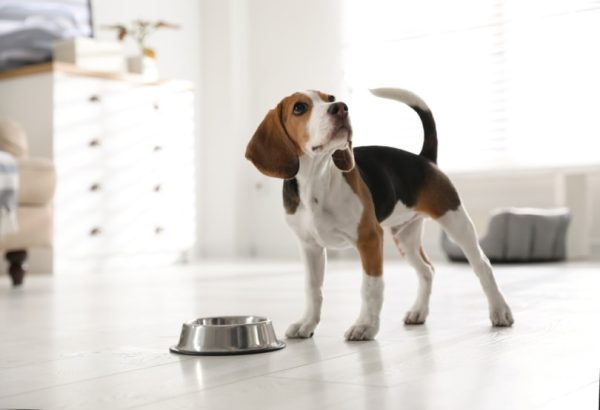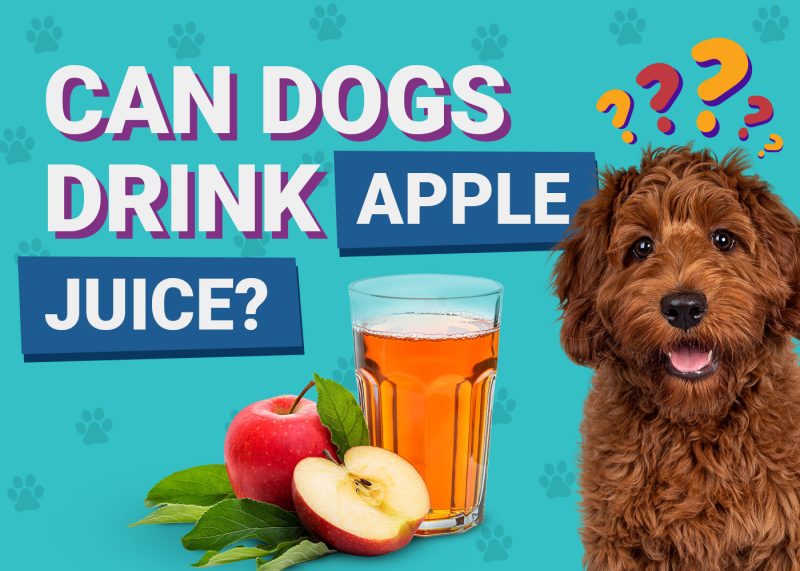In this article
We all know that there is puppy food and adult dog food. If you are the proud owner of a new puppy, congratulations! But if you already have an adult dog in the home, you know that there’s potentially going to be some sharing of the food between them. Or perhaps you found puppy food that was more affordable than your previous adult dog food, but is puppy food bad for adult dogs?
Adult dogs shouldn’t eat puppy food as their main diet because it can cause health conditions, such as obesity.
Here, we discuss why it’s bad for adult dogs to eat puppy food and give you suggestions on how to prevent it from occurring.

Why Can’t Adult Dogs Eat Puppy Food?
Dog food is formulated to support dogs at different life stages. This means the food contains ingredients and varying nutrition levels to support the puppy, adult, or senior dog.
Puppy food contains certain nutrients in specific ratios for a growing dog. The levels of these nutrients are typically higher in puppy food, and they are also higher in calories, all of which help support a growing puppy.
Compared to adult dogs, puppies need extra calcium, phosphorus, copper, and zinc because they have growing bones and tissues. Adult dogs have slower metabolisms and require food that sustains them and offers maintenance to help support their health and activity levels.


Dangers of Feeding Puppy Food to Adult Dogs
For the most part, it’s not dangerous for an adult dog to eat puppy food if it only happens a few times. However, if an adult eats only puppy food for an extended period of time, various health conditions can occur.
Obesity
Since puppy food is so much higher in calories than adult dog food, one of the main risks is obesity. The average adult dog does not need high calories in their diet and will put on extra weight if consistently fed a diet high in calories.
An overweight dog is often prone to other health problems, such as diabetes, and potentially an overall shorter lifespan.
Joint Issues
Joint problems, particularly arthritis, are definitely a concern when dogs are overweight. Dogs may speed the development of arthritis because they are overweight, or the extra weight can worsen the arthritis of a dog already diagnosed with the disease.
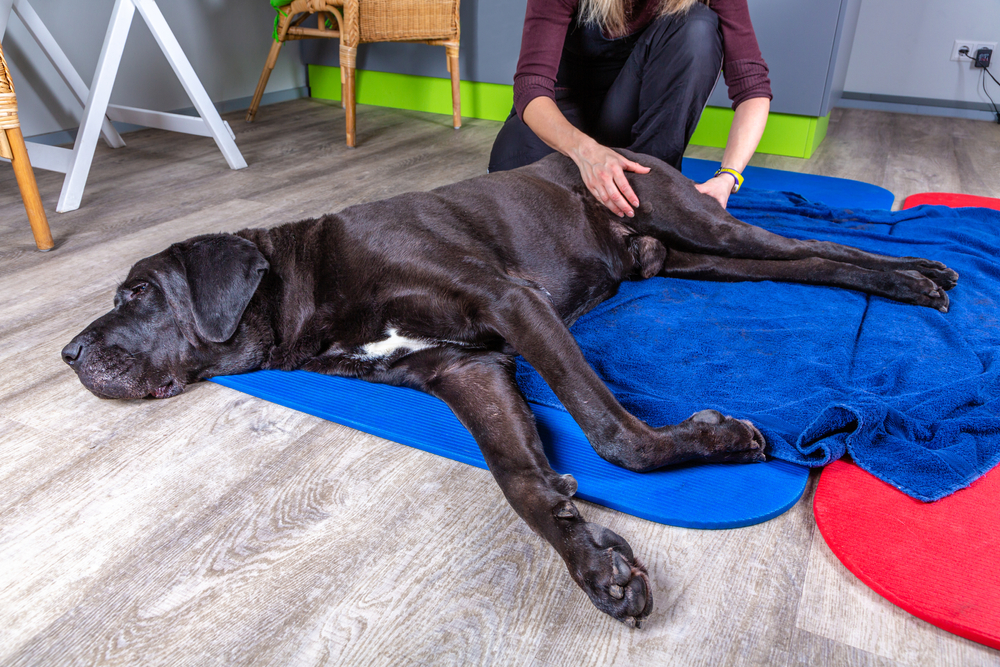
Kidney Problems
A diet of puppy food won’t necessarily cause kidney problems in a healthy adult dog, but if the dog already has kidney disease, the high protein in puppy food can exacerbate the condition.

When Is It Okay to Feed Puppy Food to Adult Dogs?
In certain circumstances, giving puppy food to an adult dog is acceptable and even necessary. However, it must be done under a veterinarian’s supervision. In most cases, this is a temporary solution.
Every dog is unique in their nutritional needs, so we recommend reaching out to a vet for advice.
If you need to speak with a vet but can't get to one, head over to PangoVet. It's our online service where you can talk to a vet online and get the personalized advice you need for your pet — all at an affordable price!

Weight Gain
If a dog is severely underweight—which is a common issue when adopting a rescue dog—or if they have a serious illness, a veterinarian might recommend feeding puppy food to the dog for the extra calories.
Puppy food will rebuild the dog’s muscles and enable them to gain weight. This is a temporary situation, as the dog will go back to eating adult dog food once a healthy weight has been achieved.
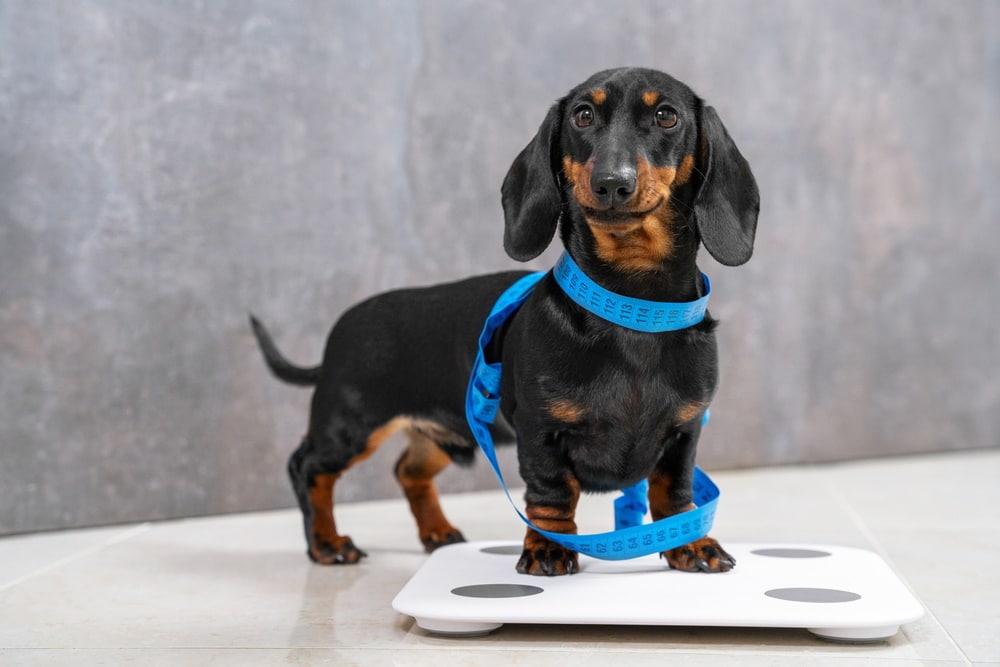
Pregnant or Nursing
Pregnant and nursing dogs require a diet higher in calories and nutrients, which will support the mother and her growing puppies. A female without the right amount of proteins, minerals, and vitamins tends to have a higher puppy mortality rate. Once the puppies are weaned, the mother will be transitioned back to adult dog food.

How to Prevent Your Dog From Eating Puppy Food
If you’re in a situation where you have a puppy and an adult dog, you must ensure that each one is eating the appropriate food. Puppy food is a big draw for adult dogs because it’s fattier, which automatically makes it yummier. You can take steps to ensure that your dogs will eat the right food.
Separate Them
One option that you can try is to separate your dogs at mealtimes. You can do this by placing them in different rooms or by using baby/dog gates during dinner. Keep them separate until the bowls are licked clean! Microchip feeding stations or bowls can also effectively separate pups to their correct food.
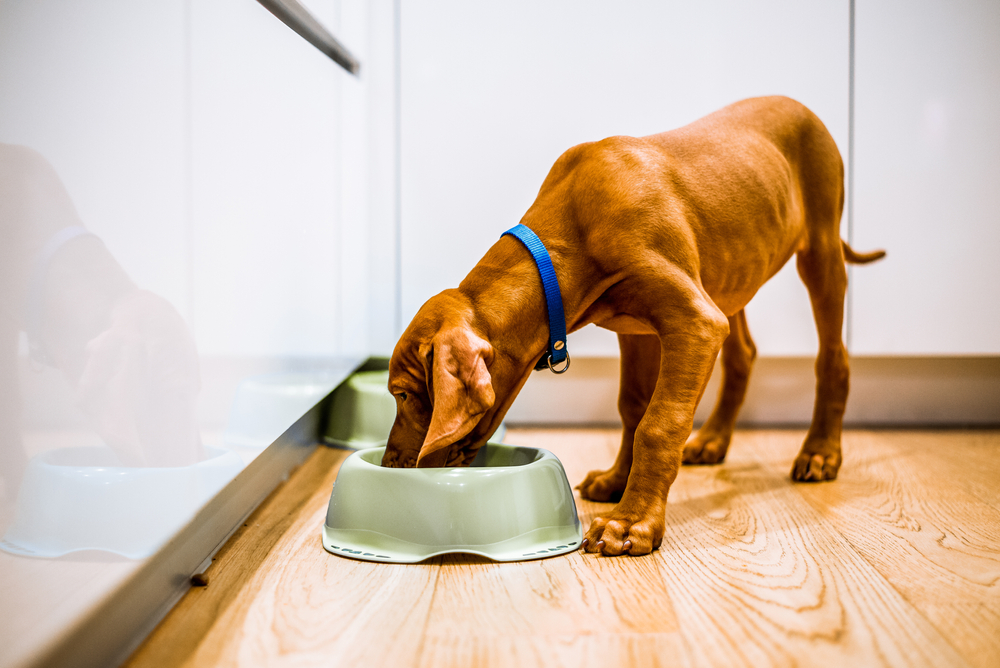
Make a Feeding Schedule
You’ll need to avoid free feeding, which means allowing your dogs to eat the puppy food whenever they want. Ensuring that you only feed your dogs at specific times will prevent them from scarfing down the wrong food.
Remove Bowls After Meals
If your puppy doesn’t eat their entire dinner, you’ll need to remove the bowl once they are done eating, and this goes for all dogs.

FAQ
Is It Ever Okay to Give a Puppy Adult Dog Food?
It won’t harm your puppy if they eat adult dog food, but it’s best if they stick to puppy food for as long as they are a puppy. They need the extra calories, fat, protein, and calcium to support their growing bodies. If all that they eat is adult dog food, they might have issues with infections, allergies, or slow wound healing as they mature.
When Should You Switch a Puppy to Adult Dog Food?
Typically, a dog is considered an adult at 1 year of age. But the size of the dog factors in quite heavily in how a dog ages.
Small breeds mature faster than large breeds and can be transitioned to adult food between 9 and 12 months of age. Large breeds are more likely to be fully mature by 18 months old. You should have a conversation with a vet to help you decide when your puppy is ready for adult dog food.
How Do You Transition From Puppy Food to Adult Dog Food?
The transition is generally done gradually to avoid an upset stomach. It helps if you plan to use the same brand and flavor of food, which should make the transition easier. It should occur over the course of 5 to 7 days. Start by adding about 25% of the adult dog food to the usual puppy food, which should be 75% of the usual amount. Over the next several days, continue adding more adult food, and take away some of the puppy food until they are only eating adult dog food.
Too sudden a change might cause your dog to have vomiting, diarrhea, and a lack of appetite. It is particularly important to do a slow transition for puppies with food allergies or sensitive stomachs. Speak to a vet if your puppy isn’t taking to the transition well.

Conclusion
If your dog snatched a mouthful or two of puppy food, there’s no harm done. But if your dog consistently eats too much puppy food, this can put them at risk for obesity, arthritis, and kidney problems. If you have a puppy and a mature dog, you’ll need to feed them separately and remember to pick up their bowls when they’re done so they can’t sneak the other’s food.
It’s essential that your dog eats the right food for their current age and activity level. Speak with your vet to help you determine what the best food is for your dog.


